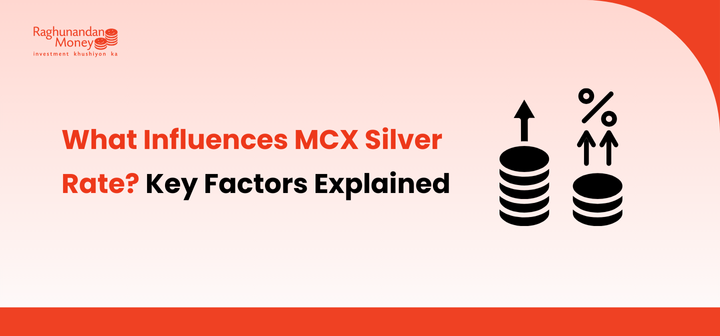Introduction
A
Follow-On Public Offer (FPO) is a process through which an already listed company raises additional capital by offering shares to the public. It is similar to an
Initial Public Offer (IPO), except that the company has already gone public and is listed on the stock exchange.
Key Differences between FPO and Rights Issue
People often confuse
Rights Issues and
FPOs, as both are ways for a company to raise funds through the equity markets.
However, there are several key differences:
1. Eligibility:
- Rights Issue: Only available to existing shareholders. If you are a shareholder of
the company on the record date, you can subscribe to the rights issue.
- FPO: Open to the public, meaning both existing shareholders and new investors
can participate.
2. Process:
- Rights Issue: Shareholders are given rights entitlements to purchase additional shares, which can be exercised up to a specific date.
- FPO: Open to the public, and investors can subscribe within a set period, like an IPO, with no restriction to only existing shareholders
3.Pricing:
- Rights Issue: Typically offered at a discount to encourage participation among existing shareholders.
- FPO: Offered at the current market price or at a slight discount to minimize the dilution effect on existing shareholders.
4. Purpose and Use:
- Rights Issue: Preferred for smaller amounts of capital or when the company doesn’t intend to expand its investor base significantly.
- FPO: Used for raising larger sums of capital for expansion, debt reduction, or significant funding needs that rights issues cannot fulfill.
Understanding the Concept of an FPO
An
FPO is a means for listed companies to raise additional capital from the public. Unlike an
IPO, where a company is going public for the first time, an FPO is issued by a company that is already listed on the stock exchange.
Example:
Companies such as
Yes Bank and
Vodafone Idea have opted for FPOs when they required significant capital for operations. FPOs allowed them to tap a broader investor base, which was necessary to meet their funding needs.
Regulatory Process and Pricing in FPOs
Like an
IPO, FPOs are regulated by the
Securities and Exchange Board of India
(SEBI). The process includes:
1. Detailed Disclosures: Companies must provide extensive information, such as financials and the purpose of raising funds.
2. Transparent Pricing: Since the company is already publicly traded, there is more available data to guide pricing decisions. Though investing in an FPO carries risks, it is generally considered less risky compared to an IPO due to the availability of public information.
Steps in a Follow-On Public Offer (FPO)
The FPO process involves several key steps:
1. Assessment of Funding Needs:
- Companies assess their funding requirements, keeping in mind the potential dilution of equity.
2. Regulatory Approvals:
- The company files a Draft Red Herring Prospectus (DRHP) with SEBI, followed by a Red Herring Prospectus (RHP) after receiving approval.
3. Price Band Fixation:
- A price band is set for the FPO, often through a book-building process, where investors place bids.
4. Offer Period:
- The FPO is open for subscription for a period of 3-4 days.
5. Allotment and Listing:
- After the offer closes, the company finalizes the allotment, and shares are credited to investors’ demat accounts.
6. Post-Offer Monitoring:
- The company ensures that the raised funds are used as promised and in accordance with the stated goals.
Dilutive Vs Non-Dilutive FPO
FPOs can be either
dilutive or
non-dilutive:
1. Dilutive FPO:
- New shares are issued to raise capital, resulting in a dilution of the Earnings Per Share (EPS).
2. Non-Dilutive FPO:
- Existing shareholders sell their shares, increasing the liquidity and free float without diluting EPS.
Key Merits of Issuing FPOs
For Companies:
- Quick Access to Funds: Companies can raise substantial capital quickly for expansion or debt reduction.
- Strengthens Balance Sheet: An FPO can improve the company’s financial position by reducing debt or funding growth initiatives.
For Investors:
- Opportunities in Established Companies: FPOs provide a chance to invest in companies with a proven track record.
- Lower Risk than IPOs: Public information available from the company makes FPOs less risky than IPOs.
Disclaimer: Investment in securities markets is subject to market risks. Read all related documents carefully before investing. Opening an account does not guarantee allotment of shares in an FPO. Investors are advised to perform their own due diligence before investing. Brokerage will not exceed SEBI prescribed limits.

Stock Trading Now trade in ₹9 Per Order or ₹ 999 Per Month Plans.
Future & Options Access F&O contracts with advanced tools for hedging and speculation.
Currency Trading Trade in major currency pairs and manage forex exposure efficiently.
Commodity Trading Diversify Trading with MCX & NCDEX by Trading in Gold, Silver, Base Metals, Energy, and Agri Products.
Margin Trading Funding Boost your buying power with upto 5X, Buy now Pay Later
Algo Trading Back test, Paper Trade your logic & Automate your strategies with low-latency APIs.
Trading View Leverage Trading View charts and indicators integrated into your trading platform.
Advanced Options Trading Execute multi-leg option strategies with precision and insights.
Stock Lending & Borrowing Earn passive income by lending stocks securely through SLB.
Foreign Portfolio Investment Enable NRIs and FPIs to invest in Indian markets with ease and compliance.
IPO Invest in upcoming IPOs online with real-time tracking and instant allotment updates.
Direct Mutual Funds 0% Commissions by investing in more than +3500 Direct Mutual Fund Scheme.
Corporate FDRs Earn fixed returns with low-risk investments in high-rated corporate fixed deposits.
Stocks SIPs Build long-term wealth with systematic investment plans in top-performing stocks.
Bonds & NCDs Access secure, fixed-income investments through government and corporate bond offerings.
Depository Services Safely hold and manage your securities with seamless Demat and DP services with CDSL.
Journey Tracing our growth and milestones over time.
Mission & Vision Guided by purpose, driven by long-term vision.
Why RMoney Platform Smart, reliable platform for all investors' needs.
Management Experienced leadership driving strategic financial excellence.
Credentials Certified expertise with trusted industry recognition.
Press Release Latest company news, updates, and announcements.
Testimonials Real client stories sharing their success journeys.
7 Reasons to Invest Top benefits that make investing with us smart.
SEBI Registered Research Trusted insights backed by SEBI-compliant research.
Our Technology Advanced tools enabling efficient online trading.
Calculators Access a suite of smart tools to plan trades, margins, and returns effectively.
Margin Calculator Instantly check margin requirements for intraday and delivery trades.
MTF Calculator Calculate MTF funding cost upfront to ensure full transparency before placing a trade.
Brokerage Calculator Know your exact brokerage charges before placing any trade.
Market Place Explore curated investment products and trading tools in one convenient hub.
RMoney Gyan Enhance your market knowledge with expert blogs, videos, and tutorials.
Performance Tracker Track our research performance with full transparency using our performance tracker.
Feedback Share your suggestions or concerns to help us improve your experience.
Downloads Access important forms, software, and documents in one place.
Locate Us Find the nearest RMoney branch or service center quickly.
Escalation Matrix Resolve issues faster with our structured support escalation process.
Back Office Log in to view trade reports, ledger, and portfolio statements anytime.
Account Modification Update personal or bank details linked to your trading account.
Fund Transfer Transfer funds instantly online with quick limit updation to your trading account.
Bank Details View our registered bank account details for seamless transactions by NEFT, RTGS or IMPS.
How to Apply IPO Step-by-step guide to apply for IPOs using your trading account.
RMoney Quick Mobile App Trade on-the-go with our all-in-one mobile trading app.
RMoney Quick login Quickly access your trading account through the RMoney Quick web-based trading.
RMoney Rocket Web Version Experience powerful web-based trading with advanced tools for algo traders.
RMoney Rocket Mobile Version Trade anytime, anywhere with our feature-rich mobile trading platform.



















